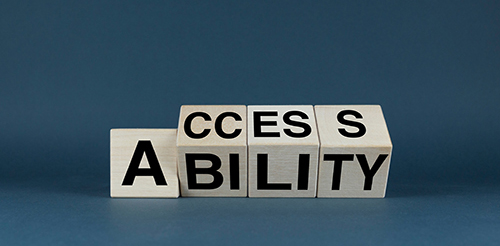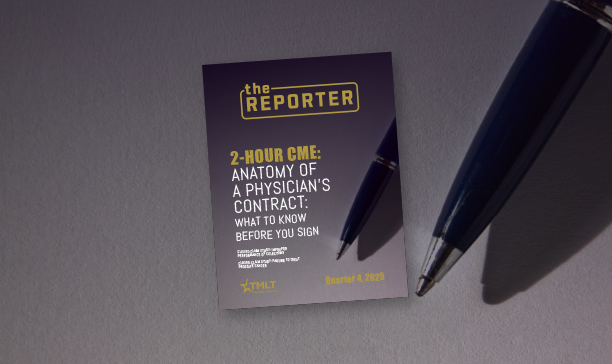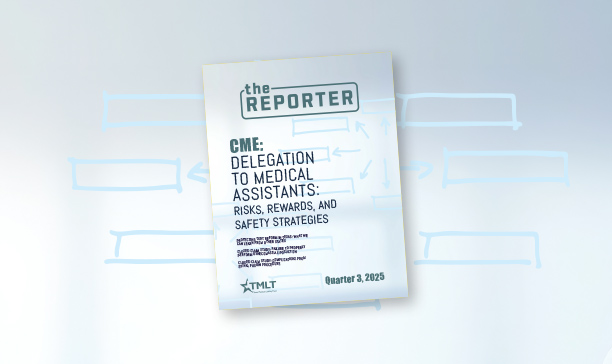Physician wellness, season extra: Self-compassion break
Taken from episode 3 of the 2024 TrendsMD podcast series on Physician Wellness, this quick meditation exercise can help you become more grounded and to treat yourself with more kindness and care.
Taken from episode 3 of the 2024 TrendsMD podcast series on Physician Wellness, this self-compassion exercise is led by Dr. Tori Olds, a licensed psychologist and founding member of Deep Eddy Psychotherapy in Austin, Texas.
This quick meditation exercise can help you become more grounded and treat yourself with the same kindness, understanding, and care you would offer a friend or patient who may be struggling. Access this 7-minute exercise at any time, for a self-compassion break.
Additional episodes in this series:
Episode 1: Physician wellness and burnout
Episode 2: Mindfulness
Season extra: Mindfulness exercise
Episode 3: The science of self-compassion
Episode 4: Physician healing and getting the most out of therapy
Transcript:
Tony Passalacqua: Tori, you were talking earlier about a self-compassion break. Could you go ahead and lead us through one of those exercises?
Tori Olds: Yeah, this is a great thing to learn because it's so user-friendly like in the middle of the day. You might not have a time to do a whole meditation, but you can probably do a self-compassion break.
Give yourself that break, right? So, what I'll invite you to do, um, you know, if you're in a place where you're sitting, you know, just begin to kind of take a breath. You know, find your, your, your body in your present moment. Um, but what I'll invite you to do is just think of some area in your life where you're experiencing some level of struggle, but not like an overwhelming level of struggle.
I know we have those too, but for the sake of this practice, maybe on a scale of 10, don't pick like an eight, pick like a four or five. You know, something that's maybe even a three — an annoyance, a dynamic you have with someone at work. Just something where you're feeling not emotional, you know, huge suffering, but it is difficult.
And just for a moment, it's like, like we talked about with mindfulness, it's just showing up. Like, hey, what's going on? So just the first step, just begin to tune into that situation, you know, remember it like, oh, what was that? What was it that happened? Or what am I worried will happen? And just really just bringing that situation a bit to life in your mind's eye.
Now as we've kind of opened that up, next I'm going to move you through using three phrases sort of designed to help us remember the three parts of self-compassion. And I'm just going to give example phrases, but I'm going to actually ask you to like tweak it and try to find a phrase that works perfect for you. This just fits you perfect for each of these reminders. Because then I'll invite you to use them later, for those to be like your phrases. So, the first one would be something along the lines of, this is a moment of suffering. And that, this particular phrase is capturing the mindfulness piece. I'm mindfully allowing myself to be aware of the difficulty here. I'm not turning away from my suffering, I'm turning toward my suffering.
Now, I find the phrase, 'this is a moment of suffering,' a little bit formal. So, you might just try simply saying, this is hard, you know, or I'm really struggling. I don't like this. This is difficult. You know, something like that. So just play for a moment, just play inside to see like when you're thinking about the situation, what phrase feels like the most acknowledging of your emotional experience of the difficulty. Wow, this is, I'm suffering here.
And you can just see how that feels to do for a moment.
And then next I'm going to guide, we're going to move to the second part, which is that pivot away from the illusion that suffering makes us weird and effective, toward the remembering that suffering makes us normal, just like everybody else. So, one phrase you might try is, suffering is just a part of life. Or suffering is a part of everyone's life.
You might try, it's not abnormal to struggle like this, but we all struggle.
So just try a few phrases until you land on one that your heart says 'yes' to.
Everybody struggles.
And then the last little step, again, like Charlotte said, I don't know if the words matter as much as the intention. And you can do what's called the compassionate touch. That's what Charlotte's been talking about all along, where you put a hand on your heart, or over your other hand. You know, some people like to kind of like, almost like, hold their own hand.
You know, what you can find that’s, that's a useful thing to spend some time with anyway. Like, what touch for you feels the most supportive? What kind of touch, if any? So, you can do the compassionate touch. And something that's, you know, the classical way would be like, 'May I be kind to myself in this moment?'
But for me, that does feel a little bit formal, so it could just be like, 'Aw, I'm so sorry.' Or 'I’m here.'
Whatever you would say that's tender, like 'It'll be okay, you're okay, I love you.' You know, it could be anything that's like, just caring. Even just the sound, 'Aww, I'm so sorry. This is hard.' And you can feel the warmth through your hand and just the intent, that quality of support.
Just play with finding the right way, the right, everyone's different, so just find for you, how to send that signal that says, 'I don't want you to suffer self, like I do care about you… I do want to be here for you.'
And once you find that way, just try doing it and see how it feels.
Just notice how your body feels, how your breath and how your heart space, you know, changes. And just allow whatever you notice actually to be there.
So, I invite you to use this in the future. And again, the three things you're moving through is some, and you might want to write it down or practice it or play with it. You know, find your own way. As long as you're finding first, like, some way to acknowledge what you're going through. 'This is suffering. It's okay, it's normal to suffer. It does not make me defective or weird. Like, everyone suffers. This is suffering. Everyone suffers. It's hard, you know. But it's normal to have a hard time.'
And then something that sends some kind of loving message to yourself. Like, 'I'm really, you know, I, um, I'm going to be kind. Like, that, uh, I'm here. You know, I care. I'm sorry.'
And maybe with a touch at that moment with it, you know, as well.
And as you develop that practice, you'll find you can probably, you know, it's almost like any skill. It’s kind of weird to call it a skill, but any skill you get better with over time and with repetition and it gets deeper and more established in your brain and your heart and your mind.
So, you know, you might practice it and maybe the words will change but having something that's really in your back pocket for those hard moments where you just need to step away for a moment. And I, I imagine you'll find that it really helps to, to reset.
Disclaimer
Taken from episode 3 of the 2024 TrendsMD podcast series on Physician Wellness, this self-compassion exercise is led by Dr. Tori Olds, a licensed psychologist and founding member of Deep Eddy Psychotherapy in Austin, Texas.
This quick meditation exercise can help you become more grounded and treat yourself with the same kindness, understanding, and care you would offer a friend or patient who may be struggling. Access this 7-minute exercise at any time, for a self-compassion break.
Additional episodes in this series:
Episode 1: Physician wellness and burnout
Episode 2: Mindfulness
Season extra: Mindfulness exercise
Episode 3: The science of self-compassion
Episode 4: Physician healing and getting the most out of therapy
Transcript:
Tony Passalacqua: Tori, you were talking earlier about a self-compassion break. Could you go ahead and lead us through one of those exercises?
Tori Olds: Yeah, this is a great thing to learn because it's so user-friendly like in the middle of the day. You might not have a time to do a whole meditation, but you can probably do a self-compassion break.
Give yourself that break, right? So, what I'll invite you to do, um, you know, if you're in a place where you're sitting, you know, just begin to kind of take a breath. You know, find your, your, your body in your present moment. Um, but what I'll invite you to do is just think of some area in your life where you're experiencing some level of struggle, but not like an overwhelming level of struggle.
I know we have those too, but for the sake of this practice, maybe on a scale of 10, don't pick like an eight, pick like a four or five. You know, something that's maybe even a three — an annoyance, a dynamic you have with someone at work. Just something where you're feeling not emotional, you know, huge suffering, but it is difficult.
And just for a moment, it's like, like we talked about with mindfulness, it's just showing up. Like, hey, what's going on? So just the first step, just begin to tune into that situation, you know, remember it like, oh, what was that? What was it that happened? Or what am I worried will happen? And just really just bringing that situation a bit to life in your mind's eye.
Now as we've kind of opened that up, next I'm going to move you through using three phrases sort of designed to help us remember the three parts of self-compassion. And I'm just going to give example phrases, but I'm going to actually ask you to like tweak it and try to find a phrase that works perfect for you. This just fits you perfect for each of these reminders. Because then I'll invite you to use them later, for those to be like your phrases. So, the first one would be something along the lines of, this is a moment of suffering. And that, this particular phrase is capturing the mindfulness piece. I'm mindfully allowing myself to be aware of the difficulty here. I'm not turning away from my suffering, I'm turning toward my suffering.
Now, I find the phrase, 'this is a moment of suffering,' a little bit formal. So, you might just try simply saying, this is hard, you know, or I'm really struggling. I don't like this. This is difficult. You know, something like that. So just play for a moment, just play inside to see like when you're thinking about the situation, what phrase feels like the most acknowledging of your emotional experience of the difficulty. Wow, this is, I'm suffering here.
And you can just see how that feels to do for a moment.
And then next I'm going to guide, we're going to move to the second part, which is that pivot away from the illusion that suffering makes us weird and effective, toward the remembering that suffering makes us normal, just like everybody else. So, one phrase you might try is, suffering is just a part of life. Or suffering is a part of everyone's life.
You might try, it's not abnormal to struggle like this, but we all struggle.
So just try a few phrases until you land on one that your heart says 'yes' to.
Everybody struggles.
And then the last little step, again, like Charlotte said, I don't know if the words matter as much as the intention. And you can do what's called the compassionate touch. That's what Charlotte's been talking about all along, where you put a hand on your heart, or over your other hand. You know, some people like to kind of like, almost like, hold their own hand.
You know, what you can find that’s, that's a useful thing to spend some time with anyway. Like, what touch for you feels the most supportive? What kind of touch, if any? So, you can do the compassionate touch. And something that's, you know, the classical way would be like, 'May I be kind to myself in this moment?'
But for me, that does feel a little bit formal, so it could just be like, 'Aw, I'm so sorry.' Or 'I’m here.'
Whatever you would say that's tender, like 'It'll be okay, you're okay, I love you.' You know, it could be anything that's like, just caring. Even just the sound, 'Aww, I'm so sorry. This is hard.' And you can feel the warmth through your hand and just the intent, that quality of support.
Just play with finding the right way, the right, everyone's different, so just find for you, how to send that signal that says, 'I don't want you to suffer self, like I do care about you… I do want to be here for you.'
And once you find that way, just try doing it and see how it feels.
Just notice how your body feels, how your breath and how your heart space, you know, changes. And just allow whatever you notice actually to be there.
So, I invite you to use this in the future. And again, the three things you're moving through is some, and you might want to write it down or practice it or play with it. You know, find your own way. As long as you're finding first, like, some way to acknowledge what you're going through. 'This is suffering. It's okay, it's normal to suffer. It does not make me defective or weird. Like, everyone suffers. This is suffering. Everyone suffers. It's hard, you know. But it's normal to have a hard time.'
And then something that sends some kind of loving message to yourself. Like, 'I'm really, you know, I, um, I'm going to be kind. Like, that, uh, I'm here. You know, I care. I'm sorry.'
And maybe with a touch at that moment with it, you know, as well.
And as you develop that practice, you'll find you can probably, you know, it's almost like any skill. It’s kind of weird to call it a skill, but any skill you get better with over time and with repetition and it gets deeper and more established in your brain and your heart and your mind.
So, you know, you might practice it and maybe the words will change but having something that's really in your back pocket for those hard moments where you just need to step away for a moment. And I, I imagine you'll find that it really helps to, to reset.
Disclaimer
Want to save this article for later?
Download the full issue as a PDF for future reference or to share with colleagues.
Subscribe to Case Closed to receive insights from resolved cases.
You’ll receive two closed claim studies every month. These closed claim studies are provided to help physicians improve patient safety and reduce potential liability risks that may arise when treating patients.
Related Resources
Discover more insights, stories, and resources to keep you informed and inspired.






